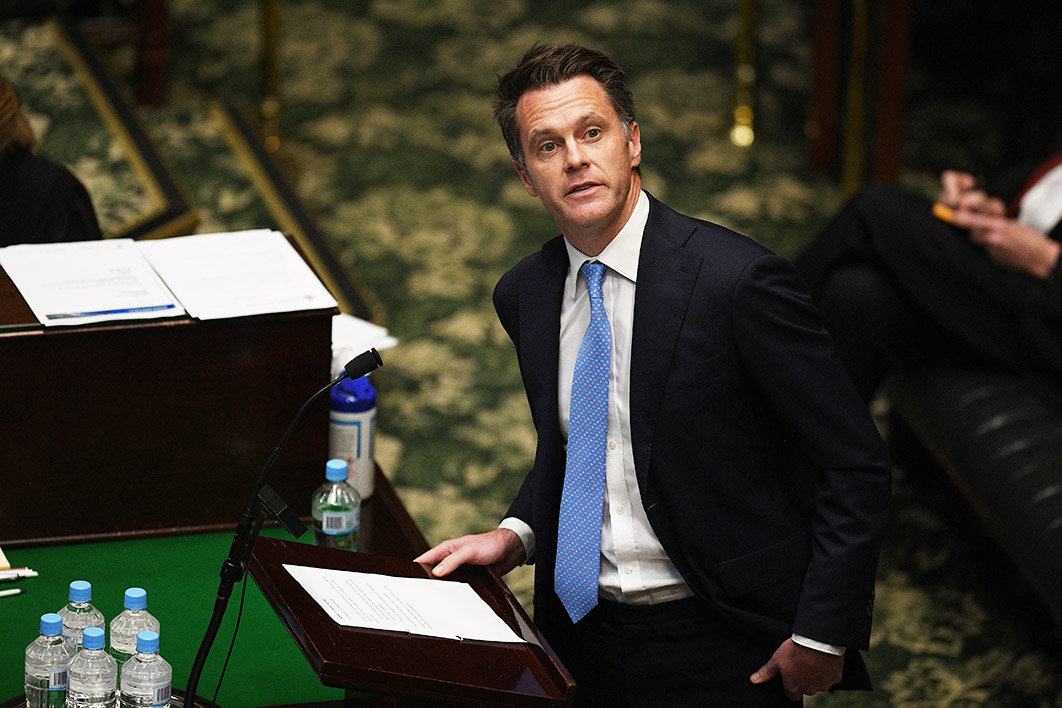Though pretty much forgotten today, former Liberal leader Peter Debnam will always occupy an important place in the political history of New South Wales. He was the naval officer turned politician who navigated the Coalition onto the rocks at the 2007 state election. Labor was widely expected to lose but Debnam’s imperfect leadership meant that premier Morris Iemma wound up with fifty-two seats in the ninety-three-seat parliament.
But it turns out the hapless Debnam was unintentionally playing the long game. By letting them win, he helped destroy an entire generation of Labor politicians.
Labor, now even more on the nose, was massacred at the following election in 2011. When the blood finally dried, just twenty seats were left to its name. If the party had lost as expected in 2007, the defeat would doubtless have been smaller and the political fallout more manageable.
Since then, the party has churned through six leaders in ten years. The latest, Chris Minns, seized the toxic tankard from Jodi McKay just last week.
On the face of it, the forty-one-year-old Minns’s elevation looks like much-needed generational change. He was brought up in the Sydney suburb of St George, went to the University of New England and then attended Princeton University, where he gained a master’s degree in public policy. He’s worked in the charity sector and as a firefighter. For a time, he was a stay-at-home dad.
Refreshingly, Minns says he wants to fight the Berejiklian government with a positive agenda. Speaking of his Coalition opponents, he told the Sydney Morning Herald, “I think I can make my point, criticise them and engage in a debate… and then we can joke about it as we get off the [parliament] floor.”
But dig a little deeper and Minns’s career path looks more like that of any other ambitious Labor MP. He joined the party when he was eighteen, and as a good Catholic boy — he still attends mass — became part of the right faction. He was president of Young Labor and did a stint in local government as Hurstville’s deputy mayor. He spent time in Sussex Street as assistant general secretary of the party’s NSW branch and worked as a ministerial adviser in Macquarie Street.
Elected to parliament for Kogarah in early 2015, his first tilt at the leadership came in late 2018, when he lost to Michael Daley. He had another go in June 2019, this time losing to Jodi McKay.
His career looks like a series of strategic moves by a man with his eye on the prize. Back in the 1990s, a teenage Chris Minns was surely sitting in his bedroom avidly reading about the superstars of the NSW Labor right — Paul Keating, Laurie Brereton, Bob Carr — while taking careful notes.
He also knows how to get things done in the modern party. Under Labor’s rules, a leadership spill is decided by a vote of both caucus and the membership. It can be a lengthy, life-sapping process. Labor MP Penny Sharpe, for example, was interim leader for 135 days before Jodi McKay was declared party leader in 2019.
But if a candidate is unopposed, there is no need to delay things by involving the membership. And that’s exactly what happened.
Back in March, unions friendly to Minns supplied the media with polling figures that “showed” McKay was unelectable. Last month’s Upper Hunter by-election was built up into a leadership test for McKay — though Labor hasn’t won the seat since 1910. Labor elders Morris Iemma and former foreign minister Laurie Brereton lobbied the waverers in caucus on behalf of Minns.
If the leadership vote had gone to the membership, the Minns ascension might have got a bit nasty.
In the early days of the challenge a document titled “Why Chris Minns and Jamie Clements Can Never Run the NSW Labor Party” was circulated within the party. Clements is the disgraced former secretary of the NSW branch who resigned in the wake of sexual harassment claims in 2016. The Independent Commission Against Corruption subsequently heard evidence that he had been given an Aldi bag stuffed with $100,000 in cash by a Chinese property developer. Clements is a friend of Chris Minns, and the godfather to one of his sons, according to the new leader’s 2015 inaugural speech to parliament.
After a decade in the wilderness, Minns’s party is divided and demoralised. Former leaders Jodi McKay and Michael Daley still sit in caucus. And the Berejiklian government, for all its faults, is beloved for its handling of the pandemic. Another wipe-out for Labor in 2023 isn’t out of the question.
But there is one possible bright spot for Minns. ICAC has not been kind to Liberal premiers; both Nick Greiner and Barry O’Farrell lost their jobs because of ICAC scandals. Last October the voters of New South Wales discovered that their saintly premier, Gladys Berejiklian, had conducted a long, secret affair with the subject of an ICAC inquiry, former Liberal MP Daryl Maguire.
ICAC has yet to hand down its report on Maguire. For Berejiklian it could be a bombshell, or a damp squib. Minns must be praying for the former. •




